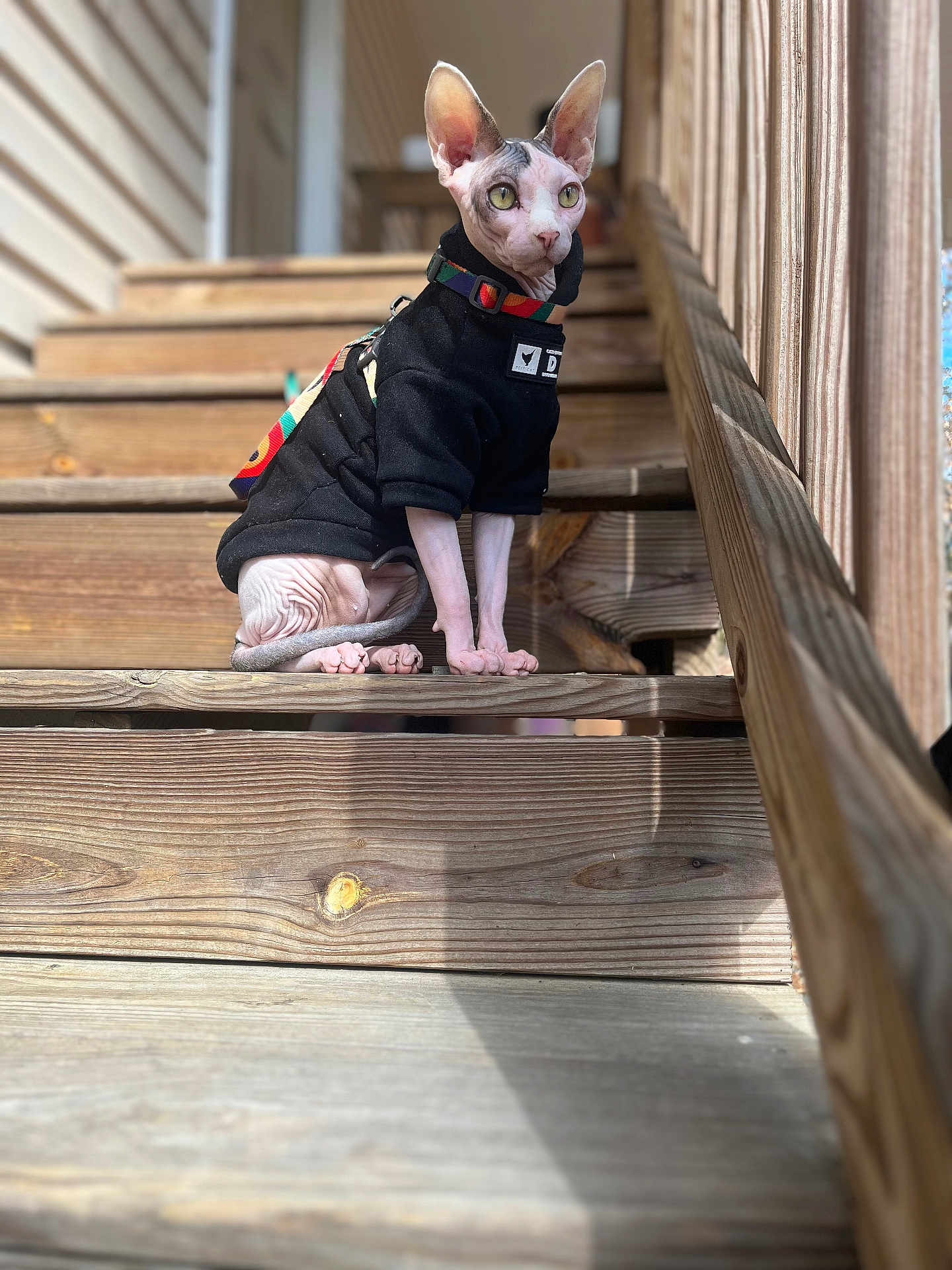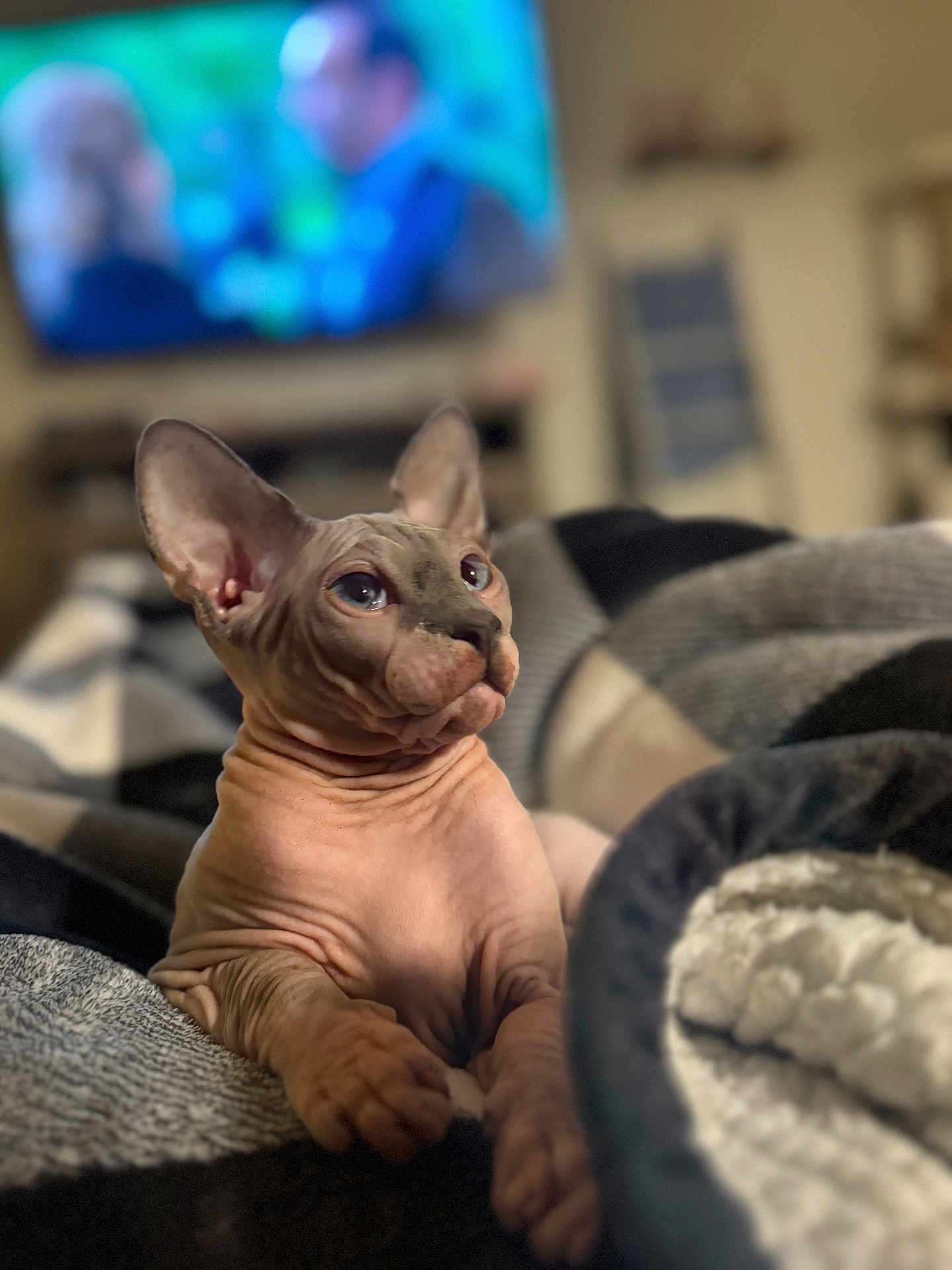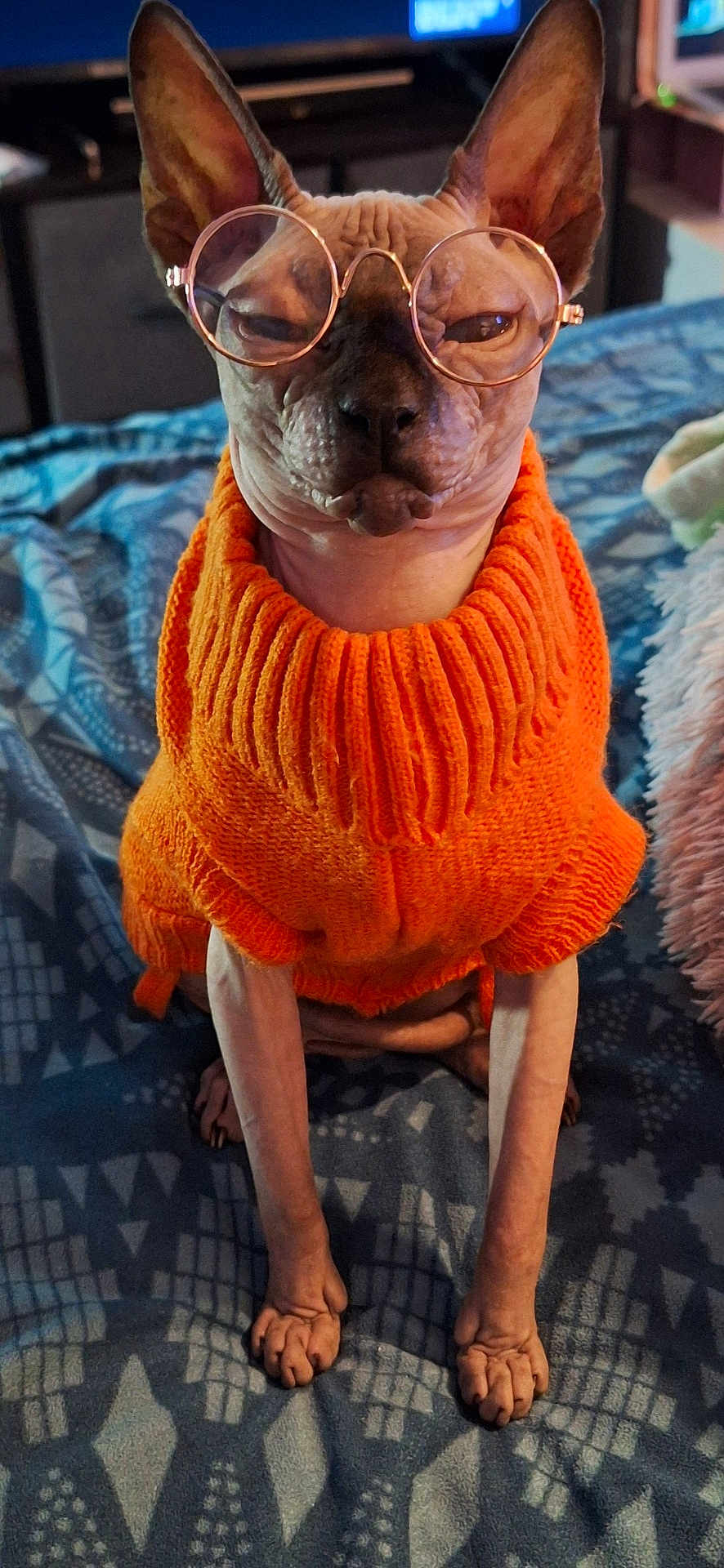
"The Sphynx may be hairless, but it has an abundance of warmth and personality, making it one of the most affectionate breeds in the feline world."
The world of cat breeds is as diverse and exciting as the personalities of the individual cats we love. Each breed carries a unique set of traits, stories, and charms that can make them the perfect companions for different types of owners. The Sphynx cat, with its striking appearance and captivating character, stands out in this fascinating mosaic of feline breeds. Delving into the intricacies of the Sphynx breed can help potential owners determine if this is the right companion for them.
Personality and Behavior of the Sphynx
The Sphynx is immediately notable for its hairless body, but beyond its unique appearance lies a personality that is bound to enchant any cat lover. Known for their extroverted and affectionate nature, Sphynx cats are often compared to dogs because of their loyal and friendly demeanor. These cats thrive on human attention and are typically very social, often seeking out the company of their owners and guests.
A key trait of the Sphynx is its playfulness. They are energetic and enjoy engaging in various activities that keep them entertained. Whether it’s chasing toys or playing with other pets, the Sphynx is always ready for a bit of fun. Their agile and muscular bodies make them excellent jumpers, and they often show off their impressive leaps and bounds around the house.
Moreover, Sphynx cats are known for their intelligence. They can learn new tricks and respond well to training when positive reinforcement techniques are used. This intelligence, coupled with their curious nature, means they are constantly exploring their environment and can sometimes get into mischief if not properly engaged.
The Sphynx is often referred to as a "Velcro cat" because of its penchant for sticking close to its owners. This affectionate nature makes them wonderful companions, especially for those who appreciate a cat that enjoys being involved in daily activities.
Meanings, History and Origins of the name Sphynx
The name "Sphynx" evokes images of the great Sphinx of Giza, an iconic monument with a lion’s body and a human head, symbolizing strength, protection, and mystery. This name is fitting for the breed, as its appearance captures a sense of ancient elegance and an air of enigma.
The history of the Sphynx breed dates back to the 1960s in Canada, where a genetic mutation resulted in the birth of hairless kittens. These kittens were found to have a natural affinity for human companionship, and breeders soon began working to establish a stable breed using these unique cats. Over the years, the breed's distinctive hairless trait was selectively bred to produce the Sphynx cats we recognize today.
In addition to their striking appearance, the hairlessness of Sphynx cats serves a practical purpose. These cats are generally more hypoallergenic than other breeds, making them suitable companions for people with pet allergies. However, it’s their warm and loving disposition that truly endears them to cat enthusiasts worldwide.
Popularity of the Sphynx
The Sphynx breed has grown significantly in popularity over the last few decades. Its unique looks and endearing personality have captured the hearts of cat owners in many countries, making it a beloved breed in the feline community.
In English-speaking countries, the Sphynx is particularly popular. Many cat owners appreciate the breed’s social nature and interactive behavior, which can be quite different from the more aloof temperament of some other breeds. The Sphynx’s almost dog-like loyalty and affection make it a top choice for families and individuals seeking a social and engaging pet.
Internationally, the Sphynx is also gaining traction. Countries with a strong pedigree cat culture, such as those in Europe and Asia, have seen a rise in the number of Sphynx cats being registered and shown at cat shows. This trend is largely driven by the breed’s distinctive appearance and its relatively low-maintenance grooming needs, despite the need for regular skin care.
The Sphynx's popularity is further bolstered by its appearance in pop culture and media. Movies, TV shows, and internet celebrities featuring Sphynx cats have contributed to their rising fame, making them a popular choice for pet owners inspired by their favorite on-screen characters.
Health and Care of the Sphynx
While the Sphynx may lack a coat of fur, it requires particular care to ensure its skin stays healthy and clean. Without fur to absorb natural skin oils, the Sphynx can become oily and greasy if not regularly bathed. It’s generally recommended to bathe these cats every one to two weeks using a mild, gentle cat shampoo.
Additionally, the Sphynx’s exposed skin makes it prone to sunburn, so owners must be cautious about sun exposure. Providing shaded areas and protective clothing can help prevent skin damage when the cat is outdoors. Despite their hairlessness, Sphynx cats are quite good at regulating their body temperature, though they often seek out warm spots around the house to stay comfortable.
Sphynx cats are generally healthy, but like all breeds, they can be predisposed to certain health conditions. Hypertrophic cardiomyopathy (HCM) is a common heart condition in Sphynx cats, so regular veterinary check-ups are important to monitor their heart health. Dental care is also essential, as this breed can be prone to periodontal disease.
A balanced diet is crucial for the Sphynx, as their high metabolism can lead to weight loss if not properly managed. High-quality cat food with appropriate nutrients keeps them healthy and energetic. It’s equally important to provide them with plenty of water and ensure they remain hydrated.
Training and Education of the Sphynx
Training a Sphynx cat can be a delightful and rewarding experience due to their high intelligence and eagerness to learn. These cats respond well to positive reinforcement methods, including treats, praise, and play, which encourage desired behaviors.
One of the first steps in training a Sphynx is establishing a routine, which helps them understand what is expected of them. Litter training, for instance, is usually straightforward due to their innate cleanliness and desire to please their owners. Introducing them to the litter box at an early age and using consistent cues can make the process smoother.
Another aspect of training involves interactive playtime. The Sphynx’s playful nature means they can quickly learn to fetch, perform tricks, and even navigate obstacle courses set up within the home. Regular play sessions not only keep them physically fit but also mentally stimulated, reducing the likelihood of boredom-induced mischief.
Socialization is key for the Sphynx, given their affectionate and social personality. Gradual introductions to new people, pets, and environments help them become confident and well-adjusted. This breed typically enjoys meeting new friends, but positive experiences during these encounters are crucial to ensure they remain sociable.
Choosing the right cat breed involves considering various factors, including lifestyle, personality traits, and care requirements. The Sphynx, with its loving nature and unique appearance, can be a joy for those who desire a cat that is both engaging and affectionate.
The Sphynx's presence in various KingPet contests highlights its endearing popularity and the affectionate connection many owners feel with this breed. Selecting a Sphynx can bring immense joy and companionship, making it a wonderful choice for cat lovers who value both warmth and uniqueness in their pets.







































































































































